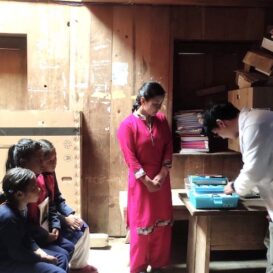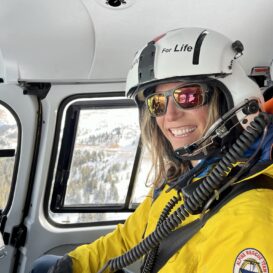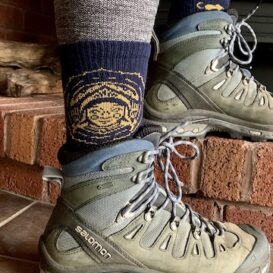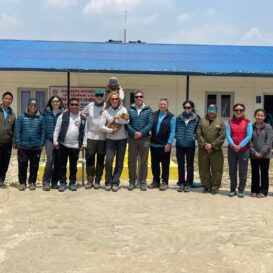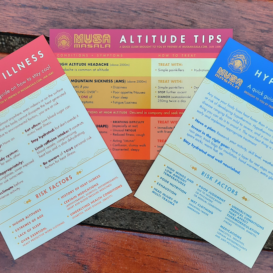Tamar Izcovich is a clinical social worker with a private practice in NYC. She is an avid hiker and is always up for an adventure outdoors. Here she shares her personal story of how being in nature helped her reclaim part of herself during the pandemic. She also discusses some of the science of how nature strengthens our mental health. Also check out Tamar’s previous post, “Traveling Solo: Lessons Learned From Loose Rocks in the Himalayas.”

In mid-March of 2020, my supervisor told my team and I to grab items that we might need for the next couple of weeks (it ended up being over a year) to work from home. Work from home? That is never something I thought I would ever hear in my profession. I am a clinical Social Worker. Ninety-five percent of my job is people—which means working in person, face to face, or sometimes playing on the floor with a young child.
Near the beginning of the COVID pandemic, I remember feeling a sense of dread, anxiety and confusion. I would cry seemingly for no reason and wondered how I would work, relax, workout, hang out and manage a new relationship all in a tiny NYC studio apartment. If you’ve ever seen a NYC studio apartment, you know that doing all of those things in such a small space is not that easy and requires patience, creativity and a lot of wine!
As I began working from home, I would sit by my window and listen to the endless sound of ambulance sirens go by. While time slowly passed, I didn’t realize how deprived I was of my routine, how the constant presence of illness, death and uncertainty was draining my internal resources. It slowly came to me that, “hmm I haven’t really moved in 4 days” and “wow, I am out of breath when I walk down the street.” My motivation was down, my wit was not as sharp, and I lost some of my sense of humor (what I lean on to charm people), so you can imagine my utter despair.
When I would talk to clients about how they were feeling during that time, I realized that they were describing similar experiences to my own. I remember hearing the phrase “the new normal” a lot during those initial months of the pandemic. Rather than give me comfort, it triggered a rage: “How dare you decide that this is normal? There is nothing normal about this!!” But alas, all of the literature suggested that we are experiencing ambiguous loss and that reactions similar to grief are common and normal. Maybe that’s what they meant when they said “new normal.” Soon, we would all be experts in managing grief.
I didn’t know what I needed until I went on my first real walk outside and then my first hike in a year over the summer with a small group of friends. Being in nature, out of breath, walking on the soft ground and over rocks felt comforting to me. Sure, my hiking pants didn’t quite fit and I was not as strong I’d been the prior year, but something about the air, the challenge, the adrenaline and dopamine pumping through my body again helped me come back to some sense of normalcy. The experience was healing.

Research shows that interacting with nature has cognitive benefits. In particular, it helps improve attention span both in adults and children; it improves working memory and cognitive flexibility. These are important executive functions that help us navigate the world.
When we are faced with trauma, such as the impact of sudden changes, death or illness, which many of us have experienced during the pandemic, our access to executive function is more limited. We rely on our fight, flight, freeze responses needed to survive. This makes it harder for us to use our executive brain. It is our body’s way of saying “this is how you stay safe now.” Sometimes, this system lingers even after danger is no longer imminent and using our executive functions can become harder even when we are safe again.
But we also know a lot about resilience and that our brain bounces back. New neural connections form and we often feel stronger or different or maybe more compassionate toward ourselves and others after a traumatic experience.
Nature helped bring some of me back. Doing something active again, breathing the cool air and being able to use my body in a way I hadn’t in a long time reminded me of my strength, my playfulness and my grit.
We are in the “new normal” now, whatever that means. But for me, I’m choosing to take some old habits with me, to make this “new” feel a little bit more manageable. I am choosing to continue climbing mountains.

If you or anyone you know needs mental health support here are some helpful resources and numbers you can call:
SAMHSA’s National Helpline 1-800-662-HELP (4357)
Mental Health and Coping during the Coronavirus (COVID-19) Pandemic
If you would like to read more about the benefits of nature for mental health, check out this article via the American Psychological Association.
Learn more about Tamar’s work here.

